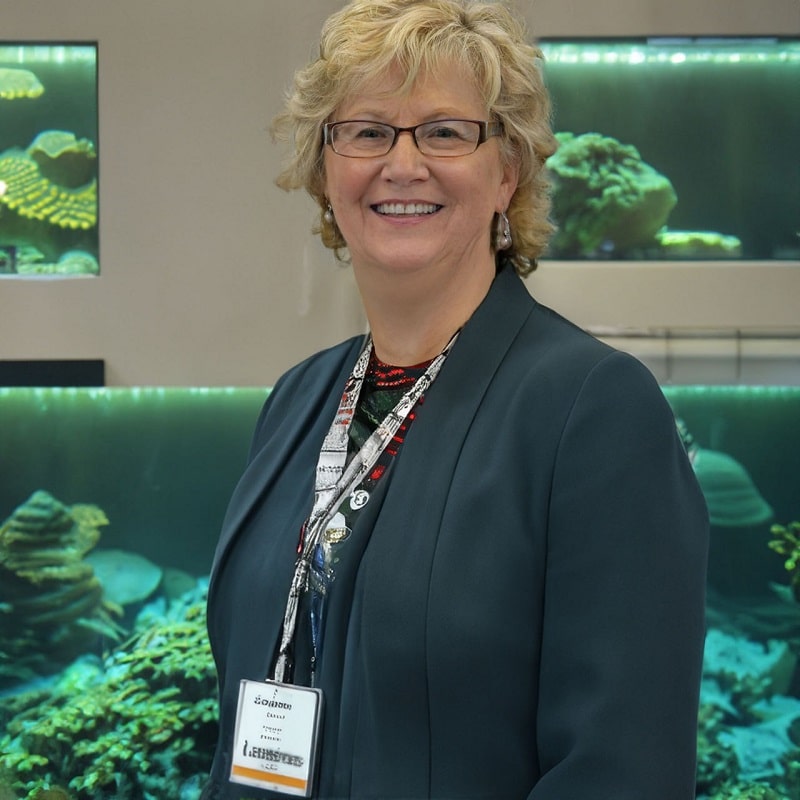Do Guppies Eat Their Babies? Indeed, guppies have been observed to consume their fry when the opportunity arises. Originating from environments where competition for resources is intense, guppies are livebearers, producing live young rather than laying eggs.
In this piece, we’ll delve into the reasons behind this cannibalistic behavior among guppies and offer insights into measures you can adopt to mitigate this and enhance the survival rate of the fry.
Do Guppies Eat Their Babies?
Yes, guppies are known to exhibit cannibalistic behavior where they consume their offspring. This behavior is not uncommon among various fish species and can be attributed to factors like hunger, stress, or natural instincts.
To minimize the chances of adult guppies preying on their fry, you can implement some preventive measures
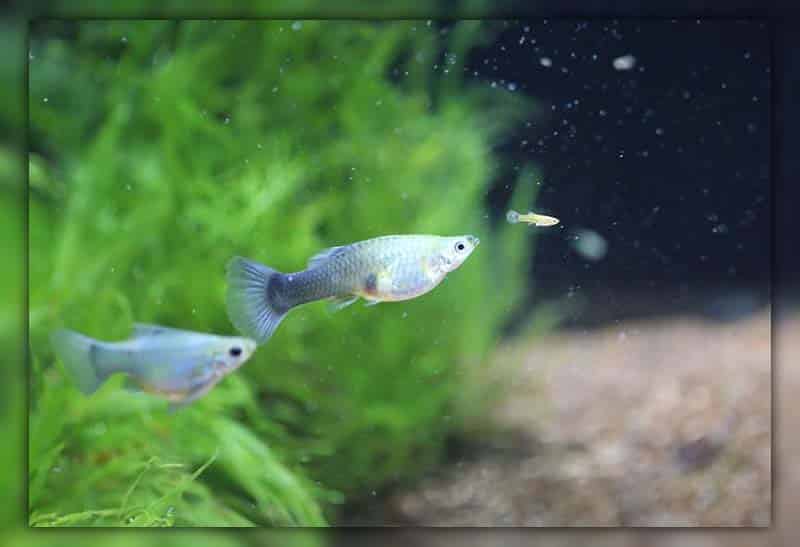
Why Do Guppies Eat Their Babies?
Guppies eating their offspring is a behavior rooted in their natural instincts and environmental factors. Here are the main reasons why guppies might eat their babies:
Natural Instinct
Your Guppy might surprise you by eating its own young. This behavior, known as filial cannibalism, isn’t because they’re being mean; they’re simply following a natural instinct. Guppies often eat fry that seem too weak, small, or not quick enough to get away. This can be seen as nature’s way of ensuring that only the strongest survive.
Additionally, the sudden increase of small fish swimming around might stress the adult Guppy, leading it to eat some of the fry. So, while it might seem odd or even alarming to us, it’s a natural part of their behavior in the wild.
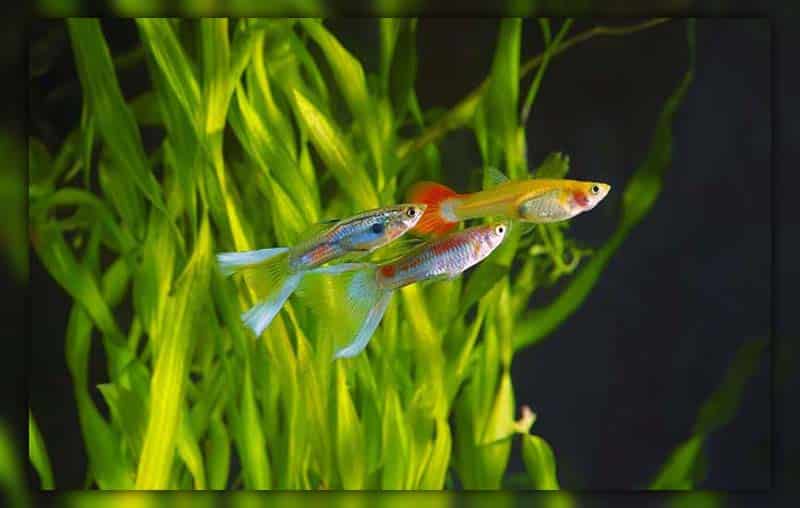
A Free Food Source
On a practical note, baby Guppies serve as a readily available food source for their parent Guppies and other fish in the aquarium. These tiny offspring are, in essence, effortless prey and also provide a rich source of fat and protein.
As far as the Guppies are concerned, they don’t recognize this form of cannibalism as a gruesome act; rather, they simply perceive their own young as a delicious and satisfying snack.
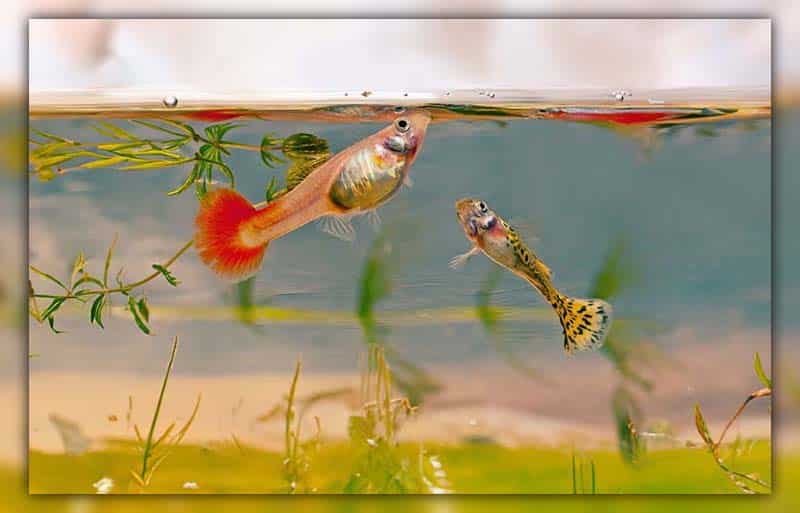
Female Guppy Fat Support System
In most cases, female Guppies eat their own babies for recovery after birth. Throughout her pregnancy, she expends significant energy, fat, and bodily resources to ensure the safety of her fry. When she eats her own young, she essentially recovers some of the fat and nutrients that she had to invest in protecting her offspring and completing the reproductive cycle.
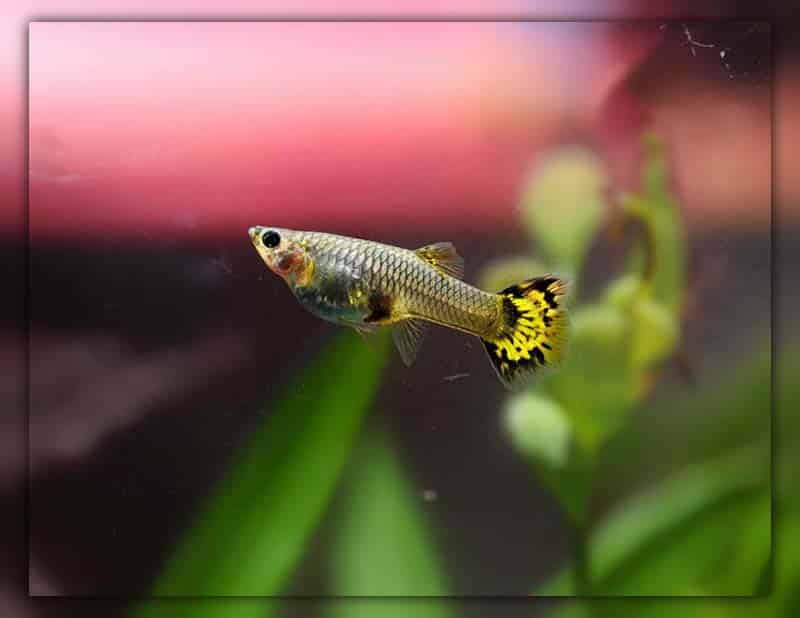
How To Prevent Guppy Cannibalism
As previously mentioned, fish keepers can effectively prevent their Guppies from consuming the fry by employing suitable techniques and equipment, such as a breeding box, a breeding mesh, or manually separating the young from their parents.
Isolate the Female in a Breeding Box
One of the simplest techniques is to isolate the female Guppy in a breeding enclosure. This enclosure is typically constructed from plastic or glass and features holes on the underside that are large enough for the fry to slip through but too small for the female to access.
The breeding enclosure, with the pregnant Guppy inside, is usually placed in the upper part of the aquarium. Here, the female can acclimate to her surroundings and naturally give birth to her young. It’s worth noting, however, that this confined space may cause stress to the pregnant Guppy due to limited movement.
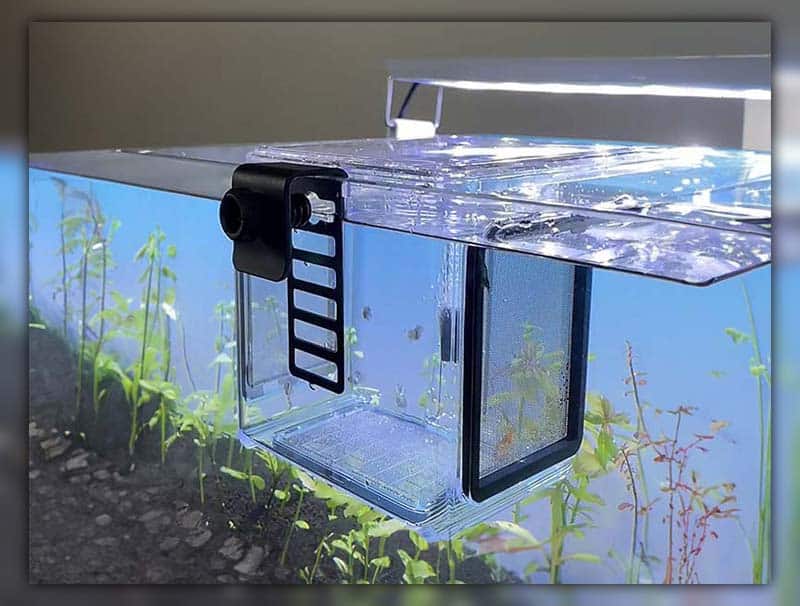
Manually Separate the Parent Fish From the Fry
Alternatively, you can manually separate the parent Guppies from their fry as soon as you are certain that the female has completed the birthing process. You can determine this by observing changes such as the darkening of her gravid spot and the presence of contractions.
After the fry are born, gently scoop out the adult Guppies and transfer them to a separate tank, ideally the main aquarium. Keep in mind that you’ll need to prepare a grow-out tank or fry tank for this method to work smoothly.
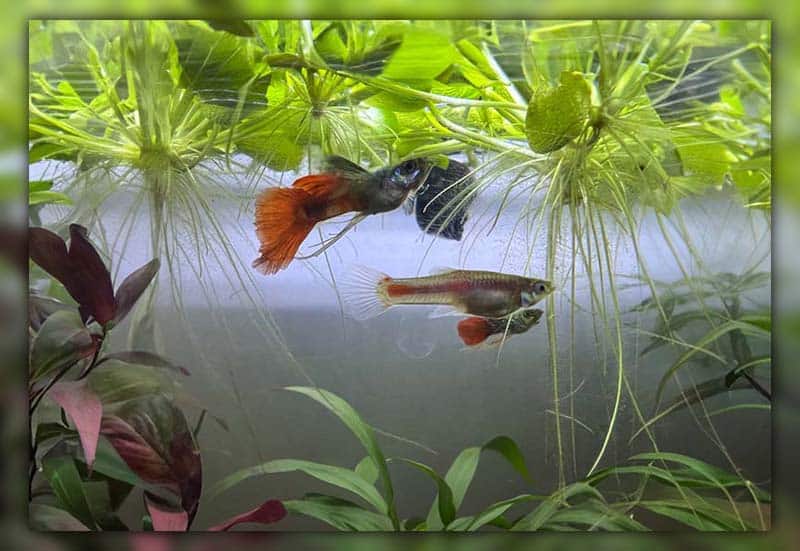
Use a Breeding Mesh
If you’re uncomfortable with manually removing the parent Guppies from the breeding tank but are hesitant to use a breeding enclosure due to its limited space, you can consider using a breeding mesh. This equipment functions similarly to a breeding box but provides the pregnant Guppy with more space to swim and relax during the birthing process.
The breeding mesh offers a safe and relatively hands-off approach to safeguarding the baby Guppies from the cannibalistic tendencies of their parents.
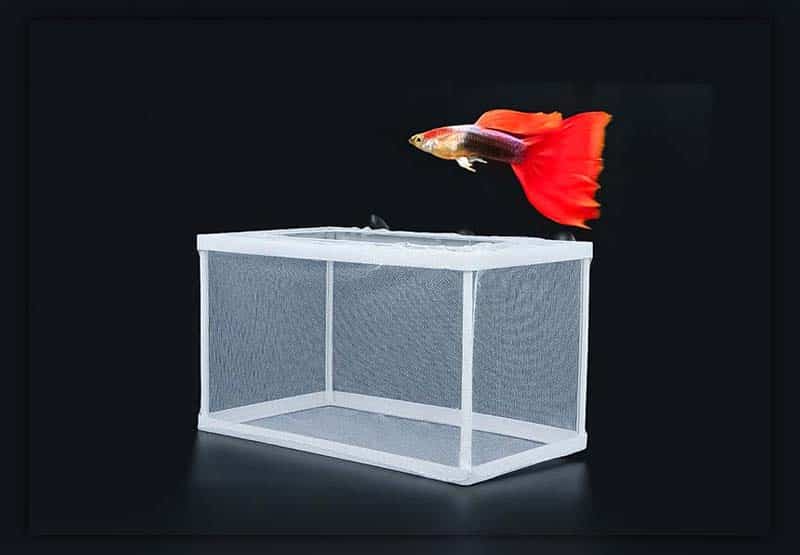
How to Help Guppy Babies Survive
Once you’ve separated the baby Guppies from the adults, the focus shifts to ensuring their survival into adulthood. While Guppy fry can be fragile and some fatalities are to be expected, there are steps you can take to improve their chances of survival and successful integration into the original population. These measures include setting up a suitable grow-out tank, providing a high-quality diet, and maintaining clean water with ideal parameters.
Prepare a Grow-Out Tank
A grow-out tank is a dedicated enclosure for housing your baby Guppies until they are ready to be moved into a larger aquarium with adult Guppies. A five-gallon aquarium can suffice, but if you have a spare 10-gallon tank, it’s even better.
For optimal growth and survival, provide the grow-out tank with a gentle yet reliable filter, LED lighting, live plants, natural hiding spots, and a water heater. These elements create a conducive environment for the baby Guppies to thrive as you gain more experience in caring for them.
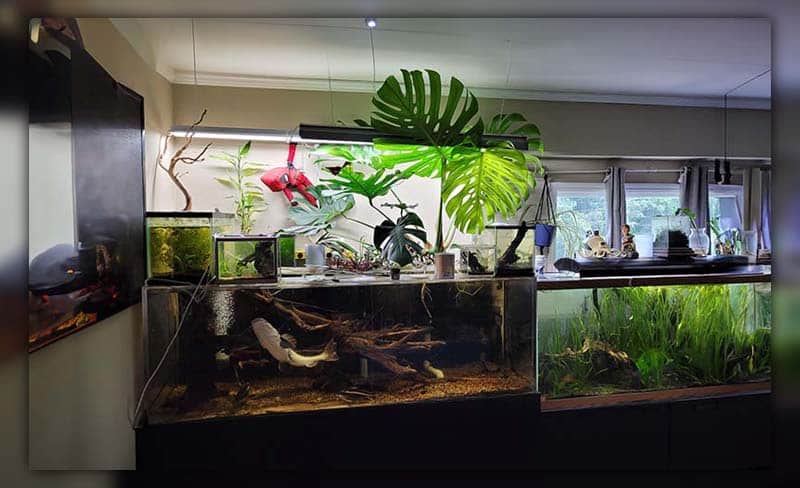
Offer a Nutritious Diet
Feeding your Guppy fry a nutritious and balanced diet is crucial. Depending on their age, you’ll need to feed them at least once a day. This can be a challenging aspect of raising baby Guppies, as they are often too small to consume sufficient food, and their sensitivity to water quality changes can lead to natural losses.
Initially, let your young fish feed on infusoria for the first few days and gradually transition to foods like fresh brine shrimp, daphnia, insect eggs, and micro worms as they continue to grow.
Maintain High Standards for Water Quality
To ensure the survival of most, if not all, of your baby Guppies, it’s essential to maintain impeccable water quality in the grow-out tank. Properly cycling the tank before allowing the parent Guppies to breed and deliver the fry is essential.
This cycling process helps establish a clean environment with minimal ammonia levels and a thriving population of beneficial bacteria that aid the fingerlings as they grow. Monitor and regulate the water temperature, keeping it close to 80 degrees Fahrenheit, and regularly check nitrite and nitrate levels during water changes.
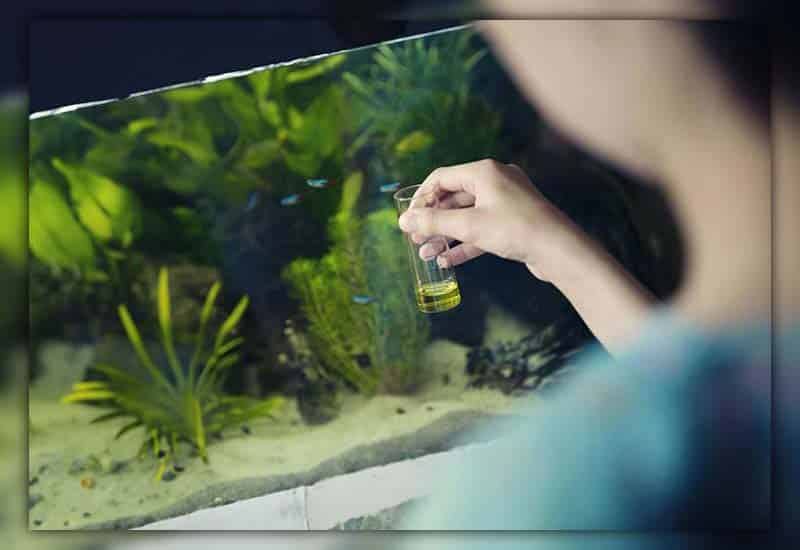
When Do Guppies Stop Eating Their Fry?
Guppies typically stop consuming their offspring about two weeks after birth when the fry are larger and able to swim freely. At this stage, you can introduce them to the main tank or another permanent aquarium.
So, to sum it up, guppies do eat their babies due to natural instincts and environmental factors. However, with proper care and preventive measures like using breeding boxes or meshes, this behavior can be curtailed. To delve deeper into the world of guppies and other aquatic wonders, visit more blogs from National Park Aquarium.



